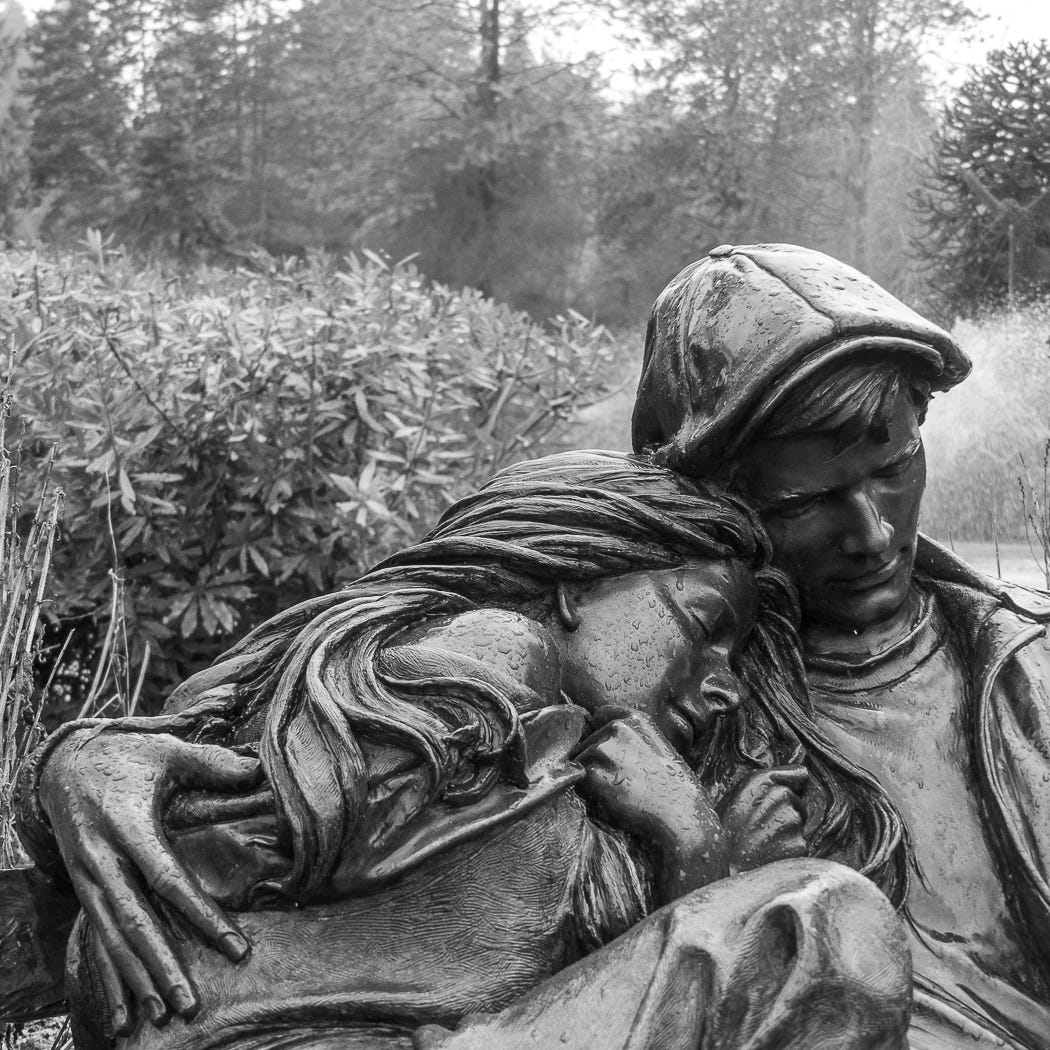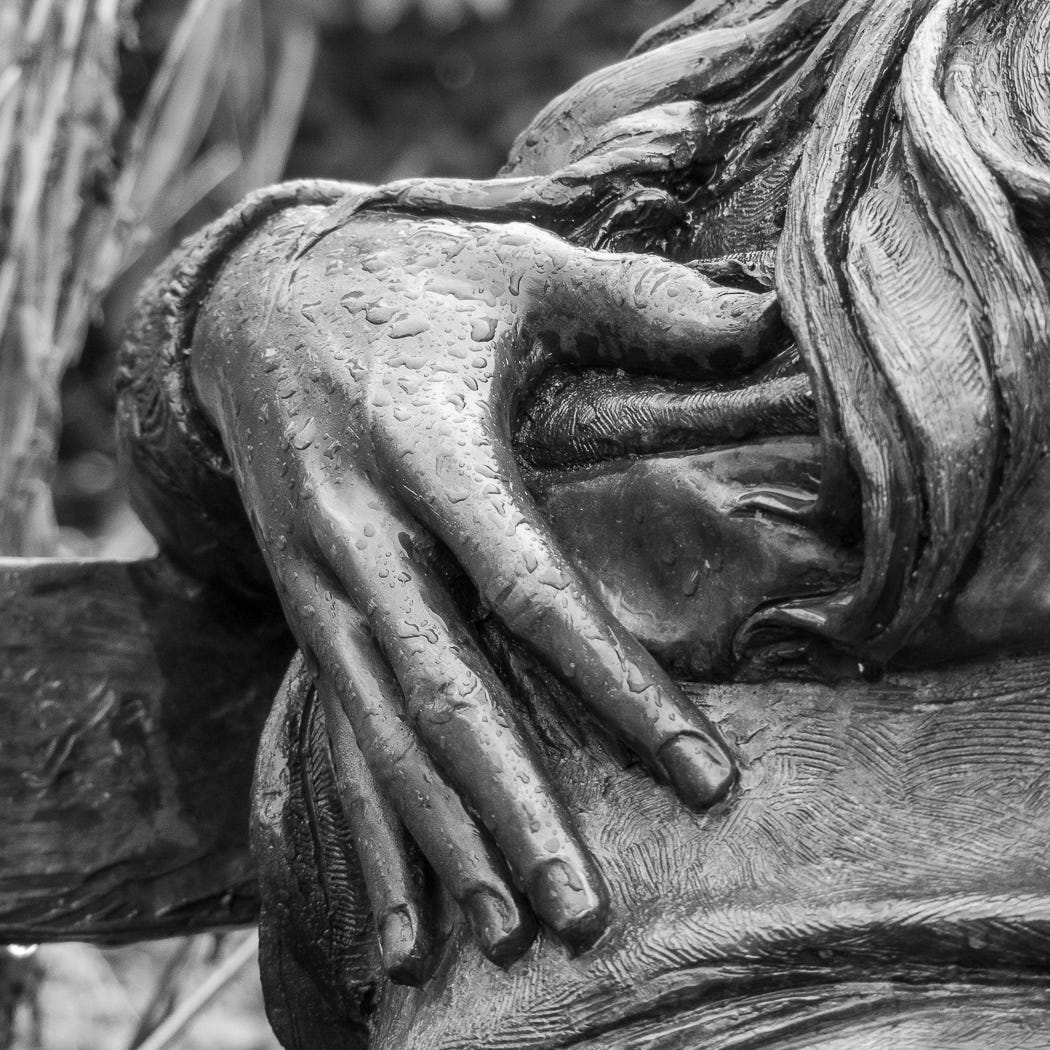Is Vancouver Losing its Soul?
City Conversation # 41: Reflections on a city where fewer and fewer can afford to live.
“For what shall it profit a man, if he shall gain the whole world, but lose his soul?—Mark 8:36
“Departure” by George Lundeen — photos by Brian Palmquist
I feel as qualified to talk about the soul of our city as any Vancouverite, not because I am a religious person, but because I have lived, worked and raised a family here for almost half a century. Our coming to Vancouver from eastern Canada was like that of a large majority of its populace—to build a better future for ourselves and our children, following dreams of a better life in what felt like a better place. Events over the past several years have led me to wonder if, at least from a planning and livability perspective, we may have been mistaken about the better place part.
English planning academic John Punter’s seminal 2003 book, The Vancouver Achievement, describes the two generations of Vancouver’s planning and design history required to create a city widely held to have an international reputation for achieving a high standard of design and for generally making the most of its superb natural setting (Punter 2003: xiv). Local but internationally renowned planner Larry Beasley’s 2019 book, Vancouverism, describes from the inside the urban design ideas, practices and discipline that characterized the blossoming of the city, which I feel privileged to have been a small part of. Both works consider a Vancouver that now appears set aside, worse, cannibalized by forces that include globalized money laundering and real estate commodification, aided and abetted by a City Hall addicted to developer money.
Most recently, using the pandemic as cover, City Hall has muzzled its electorate by tools including Zoom Q&A controls and questionable online surveys where “votes” are stacked by trolls and used as “evidence” to manufacture consent for a series of initiatives that, if enacted, will destroy Vancouver for generations to come. Further, they have “hidden in plain sight” hundreds of spot rezonings which I have searched out because city staff would not provide ready access to them.
When I started writing City Conversations a year ago, I focused on A Setting Lost to the City, the potential loss of views of the mountains, the city and ocean for thousands who felt the city’s longstanding view protection cones could be relied on to preserve their city’s setting for all. At that time city staff had already started talking to existing citizens about the need to trade off their views in favour of more housing, without noting that the upper reaches of these new buildings would obliterate the views of so many and only ever be affordable to a very few.
Nothing positive has occurred in this past few years of urban design in Vancouver, in fact, since the current City Council was elected in 2018. Let’s start with their more than 350 spot rezonings, that’s where a developer approaches City Hall about a piece of property somewhere, anywhere in the city, saying variations on, “I know the existing zoning permits 3/4/5/6 storeys, but how about 16, no 28 storeys; how about 5, no 39 storeys—how about it?” In aggregate, this Council has already approved enough spot rezonings for an almost 20 year supply of housing, most not yet built and unaffordable to most Vancouver citizens. And that doesn’t include the good, incremental development that occurs organically as, for example, the one storey, aging mom & pop shop is replaced by three storeys of residential atop renewed commercial at grade.
In case a backlog of almost 20 years worth of high density spot rezoned mostly unaffordable housing is insufficient, a majority of Council is also supporting pre-election approval of an additional 30+ year supply of housing in the forms of the densities of the Broadway Plan, the Jericho Lands Plan and almost 30 other projects that are under consideration by a Council that has approved virtually every rezoning application during its term. Adding to this, if as suggested by city staff, similar densification proposed for the current Broadway Plan was to continue along Broadway from Vine to Alma Streets when the SkyTrain UBC Extension (UBCx) is built, that would add at least an additional 15 year supply of housing to the city.
The Mayor and a majority of the current City Council are trying their hardest to “bake in” a 50-65 year supply of unaffordable housing before the next civic election.
Why am I and other citizens not jumping for joy at having our housing needs set for the next half century or more? Because so few of us will be able to afford to rent or buy that housing.
Barely 8% of all this housing is social or below market and an additional 7% is secured rental housing—the first two are what passes for affordable, the secured rental just means its developer promises to maintain it as rental for 60 years, but with no more renter protections than exist today. So one home in 12 may be affordable; an additional one in seven may not be converted from rental for 60 years. Less than half the balance will be market rental, meaning no more renter protections than today—more than half of this 50-65 year supply will be strata condominiums, largely owned by investors, either held empty or rented with no renter protections.
What is a city where more and more citizens can’t make rent?
It’s a city that is losing its soul.
It’s a city that cannot seem to fix its storm-damaged seawall, even after the Vancouverism generations of politicians and planners opened the water’s edge from downtown through False Creek to Kitsilano.
It’s a city that wants thousands more residents, but is no longer safe for women.
It’s a city hell bent on creating a subway at least 12 times as costly as lighter, proven transit.
It only required two generations to create a Vancouver that was the envy of the world. Unless we stop this destruction of our city’s soul, it will take less than a single generation to destroy that work and the city it created.
Past City Conversations include many positive thoughts on how to help our city regain its soul.
Today’s question: Do you feel Vancouver has lost its soul? Why or why not?
I read and respond to all comments made below. If you found this post to be informative and thought provoking, consider becoming a free subscriber to City Conversations at
Brian Palmquist is a Vancouver-based architect, building envelope and building code consultant and LEED Accredited Professional (the first green building system). He is semi-retired for the moment, still teaching and writing, so not beholden to any client or city hall. These conversations mix real discussion with research and observations based on a 40+ year career including the planning, design and construction of almost every type and scale of project. He is the author of the Amazon best seller “An Architect’s Guide to Construction.” He is also a member of team for a livable Vancouver, a new political party dedicated to restoring a livable Vancouver starting with the 2022 civic election. City Conversations are generally congruent with TEAM policy, so if you like the ideas that I’m writing about, please consider joining TEAM.







good article my friend. indeed its a shame that real estate here is considered an investment by wealthy foreigners. Theres more multi-millionaires in asia than there are Canadians alltogether. Foreigners get somewhere safe to dump their money and we get to move to Merritt or Kelowna.